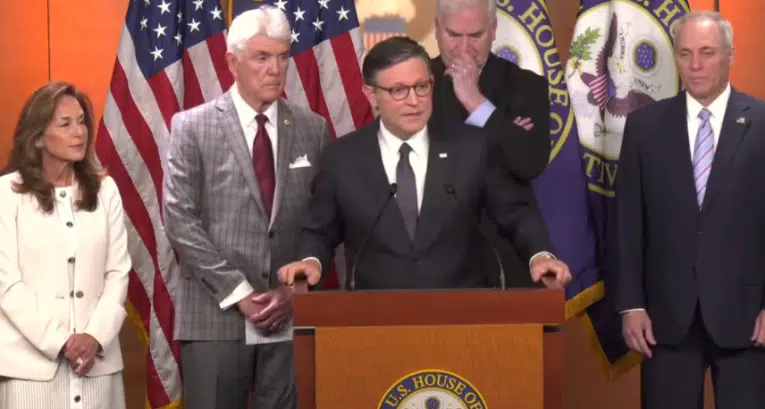NRD Editor’s Note: This column was originally featured at Forbes.com.
 By Bill Wilson — Is America descending into a dependency state, where the majority uses its voting power to demand government services from taxpayers?
By Bill Wilson — Is America descending into a dependency state, where the majority uses its voting power to demand government services from taxpayers?
New research from Ranking Member of the Senate Budget Committee Jeff Sessions (R-AL) reveals that this reality may already be here, with more than 107 million Americans on some form of means-tested government welfare.
Add to that 46 million seniors collecting Medicare (subtracting out about 10 million on Supplemental Security Income, Medicaid, and other senior-eligible programs already included in Sessions’ means-tested chart) and 22 million government employees at the federal, state, and local level — and suddenly, over 165 million people, a clear majority of the 308 million Americans counted by the U.S. Census Bureau in 2010, are at least partially dependents of the state.
Since President Obama took office in 2009, eligibility for Medicaid, food stamps, the earned income tax credit, the making work pay tax credit, and unemployment benefits has increased by roughly 10 million. To add insult to injury, Obama then unilaterally dismantled the work requirements that were the heart of the 1990’s welfare reform via an arbitrary executive order.
But it’s even worse than that. In fact, most voting-age Americans do not pay income taxes — approximately 50.6 percent.
That includes 53.91 million Americans who pay nothing in income taxes, and another 64.7 million who get refunds in excess of what was owed. That’s 118.61 million out of 234.6 million Americans 18 years and older, based on data compiled by the Joint Committee on Taxation and the U.S. Census Bureau.
The U.S. Constitution was designed to protect against such an outcome. The Founders did not want a democracy, which tends to be problematic because of the failure of minority rights to be defended against an arrogant or authoritarian majority. So, instead, the Founders created a republic.
In Federalist No. 10, James Madison wrote that in democracies, “governments are too unstable, [and] the public good is disregarded in the conflicts of rival parties, and that measures are too often decided, not according to the rules of justice and the rights of the minor party, but by the superior force of an interested and overbearing majority.”
Madison prescribed “curing the mischiefs of faction”, including a tyranny of the majority, by “controlling its effects”. Madison warned that “a pure democracy, by which I mean a society consisting of a small number of citizens, who assemble and administer the government in person, can admit of no cure for the mischiefs of faction.”
So, the “majority, having such coexistent passion or interest, must be rendered, by their number and local situation, unable to concert and carry into effect schemes of oppression.” But how?
Instead of everyone gathering on a hill and voting on laws, the scheme of representation was established, wherein we elect our representatives to make decisions. Also, having a large, geographically wide republic and constitutional limits on the powers of government, complete with two branches of legislature, was supposed to prevent a tyranny of the majority from ever appearing.
Or at least, as Madison put it, such factors would “make it less probable that a majority of the whole will have a common motive to invade the rights of other citizens”.
But has America reached a tipping point where it will no longer work?
Today, a majority of Americans have a direct financial interest in voting for representatives to ensure they keep collecting their benefits and salaries, making sure others are taxed to pay for it all.
Additionally, policies enacted since the financial crisis of 2008 have guaranteed that, for example, virtually every single new home mortgage is being purchased or guaranteed by Fannie Mae and Freddie Mac, and the student loan industry has been nationalized. It is almost impossible today to find credit that is not allocated by the government, implying that even more than 165 million are in some way dependent — whether they realize it or not.
All of which leads to the question of whether the U.S. today is in danger of becoming a tyranny of the majority.
To say the least, it would appear on the surface that Madison’s concerns about an oppressive majority were well-founded. But whether his “cure” was effective may well be determined by the outcome of the 2012 election.
Bill Wilson is the President of Americans for Limited Government. You can follow Bill on Twitter at @BillWilsonALG.






